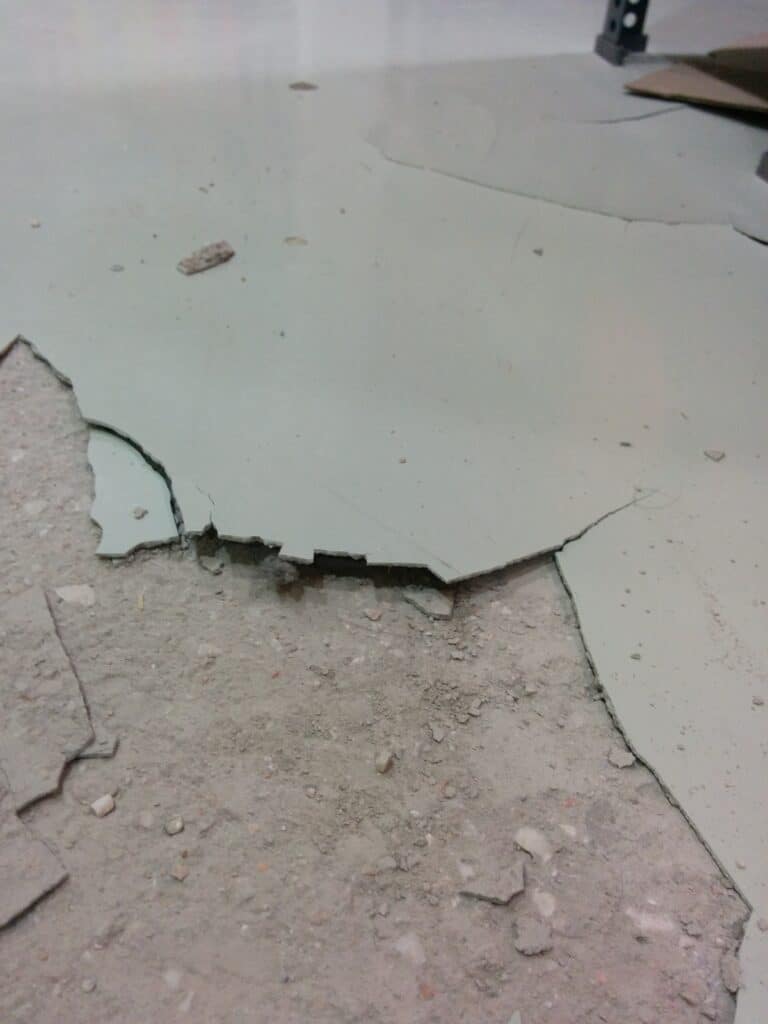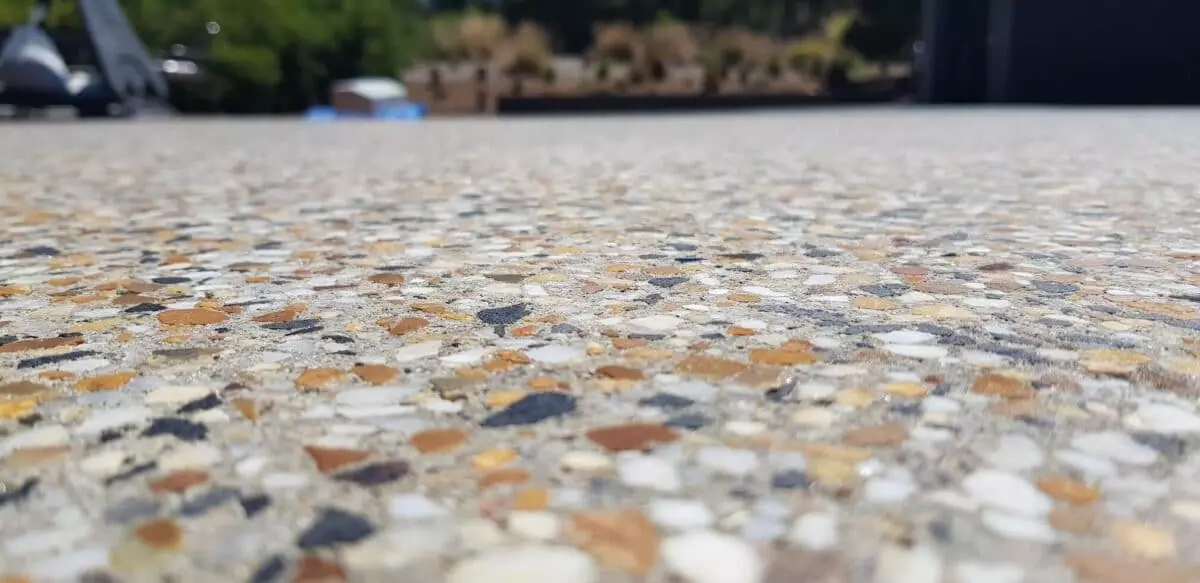Why is Acid Etching no longer an effective method of surface prep? Let’s analyze more details about Acid Etch Concrete in this article. The endurance of resin coatings mainly depends on how good it adheres to the concrete surface.
The best possible adhesion requires a clean, free of contaminants surface. Possible accumulation of fine particles of lime, sand fines, and cement dust on the surface of concrete, usually caused by an excess of water.
What is Acid Etching?
Firstly, Acid etching is the method of applying buffer phosphoric or muriatic/hydrochloric acid to a concrete slab. Secondly, wash it off with water. Furthermore, it was a common concrete preparation process for almost all commercial and residential resinous flooring applicators. For a decade, depending on the system installation and project size.
Nowadays, concrete grinding and mechanical treatment are considered the most efficient, safe, and eco-friendly concrete prep methods. Nearly all coating manufacturers no longer recommend acid etching due to the following reasons:
Concrete Acid Etching Build Insufficient Surface Profile
As defined by the International Concrete Repair Institute (ICRI), CSP (Concrete Surface Profile) is a regulated measure for the ‘roughness’ of a concrete surface (CSP-1 – smoothest, CSP-9 roughest). The thicker the resin coating, the higher the CSP number is required.
Acid etching delivers only CSP-1 or CSP-2 profiles, which is advisable for skinny coatings only (solvent or WB systems). Moreover, modern solvent-free and low VOC commercial and institutional resinous systems tend to be much thicker. Requiring CSP-3 to CSP-9 for the highest performance and best bond. This basically renders acid etching out-of-date. And installers consider mechanical preparation methods, such as shot-blasting, diamond grinding, and scarifying, to build the higher CSPs needed.

Acid Etching Results Are Erratic
As a matter of fact, Acid etching eliminates concrete pulp and lime. Still, it cannot remove most of the contaminants and curing compounds, such as water-insoluble products or oily deposits, any of which can prevent proper adhesion of a coating.
Moreover, because each concrete slab is different, the results can be inconsistent and unpredictable, even when the experts have done the process. The surface can become eventually over-or under-etched, uneven.
Environment Deleterious Surface Prep
In general, it is not unexpecting that any contact with certain acids can root chemical burns or injuries. Even with safety equipment, the risk of inhaling the fumes from concentrated muriatic acid is intensely hazardous. It can turn the moisture in the lungs and windpipe into a virtual acid compound.
Cleaning the concrete surface using a lot of water is necessary after the completion of the etching reaction. This would neutralize the acid compound to a certain degree if a contractor rinsed it properly. New federal regulations have imposed restrictions on washing the neutralized acid solution down the drain due to the risk posed to waterways and the environment as a whole.
Acid Etching Can Destruct the Concrete
The chemical reaction that appears when an acid sprayed into concrete is tough to precisely predict and control. When applied to the concrete, over-etching can occur, usually making the concrete surface more porous.
When the acid compound is washing off from the concrete, water can easily penetrate the porous slab, developing further corrosion of rebar and conditional weakening of the entire concrete structure.
Etching Concrete is More Expensive
In fact, logistics and shipping regulations of concentrated acids include numerous safety measures and expanded paperwork, increasing costs on etching materials. Also, Acid etching brings water to the concrete, which is avoided with many high solids low VOC coatings.
An applicator must wait for concrete to dry or choose a WB primer once the surface is saturated. That will add extra cost to the budget. Also, mechanical preparation of the concrete rather than acid etching can be far more economical and faster.
Above all, use only proven methods of surface preparation or contact professional contactors. Require a Free Estimate today.
